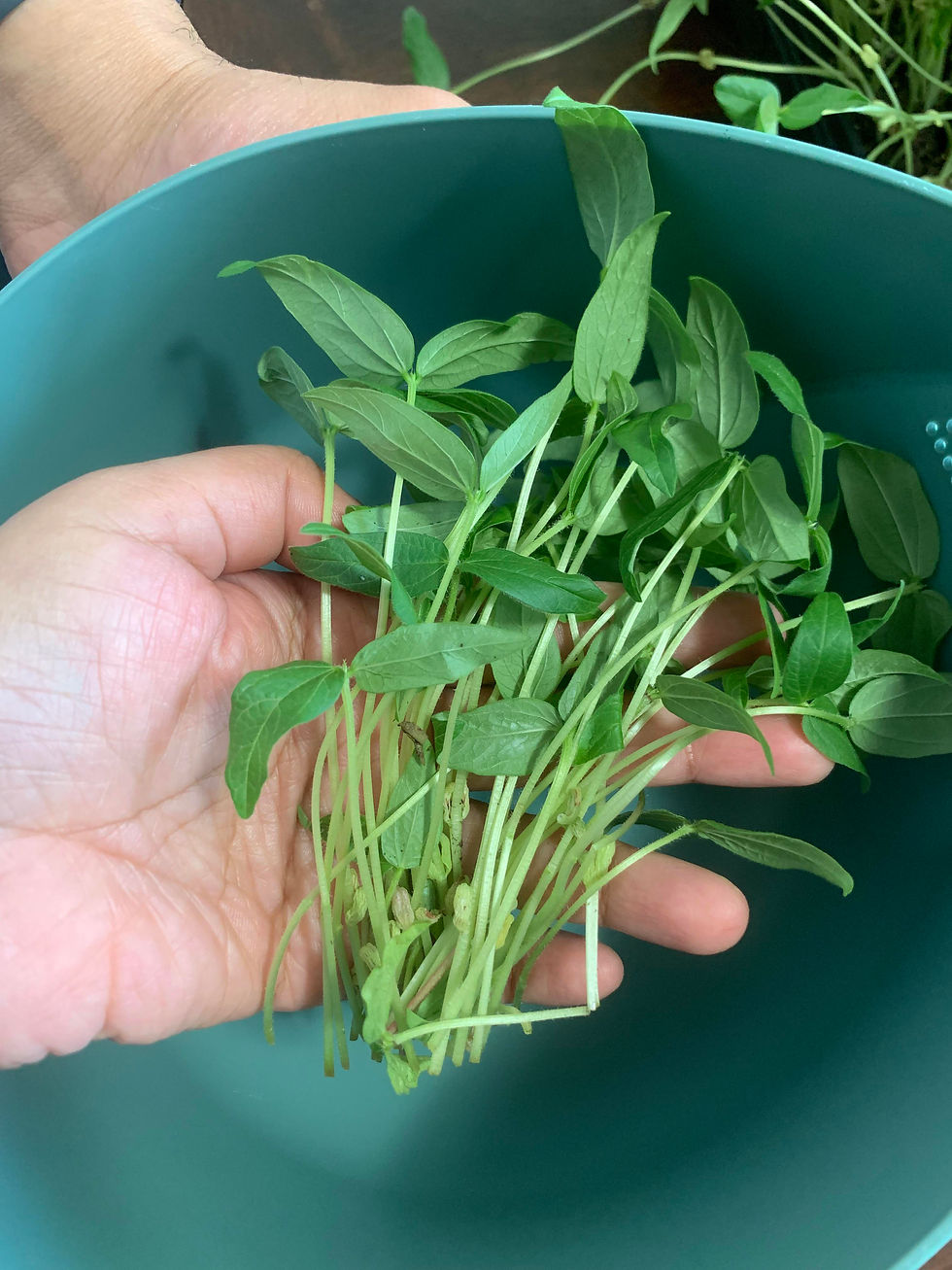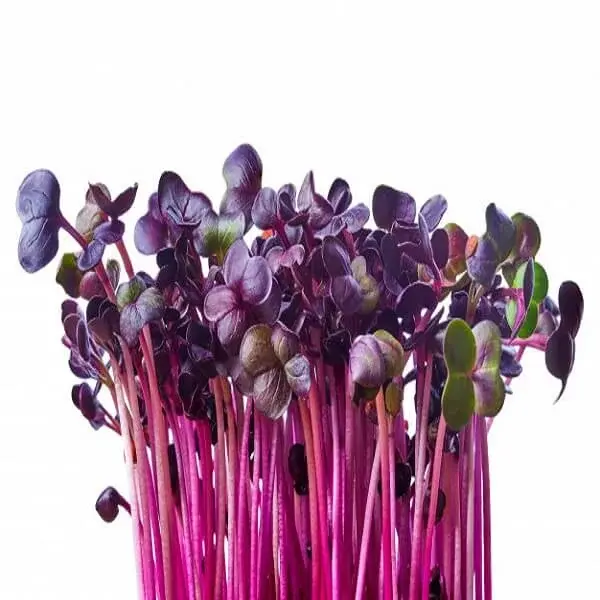Microgreen Health Benefits: Backed by Science
- mikrogrens

- Sep 17, 2025
- 3 min read

Microgreens are not just trendy superfoods – they are nutrient powerhouses with scientifically proven health benefits. At Mikrogrenz (https://www.mikrogrenz.com/), we bring you the finest seeds and complete microgreen kits so you can grow these health-boosting greens right at home. Let’s explore the science-backed health benefits of different microgreens and why you should include them in your daily diet.
Basil (Purple)
Purple basil microgreens are rich in phytochemicals, including polyphenols, anthocyanins, and vitamin C. They also provide vitamins A, K, and minerals like calcium, iron, and magnesium. These compounds support immunity, reduce inflammation, and provide antioxidant and anti-cancer properties.
Grow at home: Try Mikrogrenz basil seeds for a flavorful and nutrient-packed harvest.
Beetroot (including Bull’s Blood)
Beet microgreens are loaded with vitamin C, flavonoids, and organic acids, making them potent antioxidants. Bull’s Blood varieties add betalain pigments, offering similar benefits.
Recommendation: Start with Mikrogrenz beetroot seeds to grow colorful, nutrient-rich greens.
Broccoli
Broccoli microgreens are exceptionally nutrient-dense – with nearly 2× the minerals of mature broccoli. They are rich in vitamin C, carotenoids, phenolic antioxidants, and glucosinolates like glucoraphanin, which yields sulforaphane – a compound known for anti-cancer and antioxidant effects.
Try growing: Mikrogrenz broccoli microgreen kits – perfect for beginners.
Red Cabbage
One of the most antioxidant-rich microgreens, red cabbage has been shown to lower LDL cholesterol and triglycerides in animal studies. Its high polyphenol and glucosinolate content supports heart health and reduces inflammation.
Seeds available: Mikrogrenz red cabbage seeds.
Cauliflower
Although specific studies are limited, cauliflower microgreens likely share the cancer-protective glucosinolates, vitamin C, and carotenoids found in other Brassicas like broccoli and kale.
Grow at home: Add Mikrogrenz cauliflower seeds to your kit.
Fenugreek (Methi)
Fenugreek microgreens are especially rich in iron, along with vitamins A, C, and K. They also contain antioxidant saponins, making them excellent for supporting blood health and preventing anemia.
Seeds suggestion: Mikrogrenz fenugreek seeds.
Mustard Greens
Mustard microgreens, including red mustard, are loaded with minerals, vitamin C, and glucosinolates, giving them powerful antioxidant, anti-inflammatory, and anti-cancer potential.
Available at: Mikrogrenz mustard seeds.
Kale (Green & Red)
Kale microgreens are rich in vitamin C, carotenoids, and flavonoids like kaempferol and quercetin. Red kale varieties add anthocyanins, boosting antioxidant activity even further.
Grow both: Mikrogrenz green and red kale seeds.
Kohlrabi (Green & Purple)
Like other Brassicas, kohlrabi microgreens likely contain high vitamin C and glucosinolates. Purple kohlrabi varieties also offer anthocyanins for extra antioxidant protection.
Seeds: Available through Mikrogrenz.
Asian Greens (Komatsuna, Mizuna, Pak Choi)
These Asian Brassicas are expected to be nutrient-rich with vitamins C, K, and glucosinolates, making them excellent additions to salads and smoothies.
Grow at home: Mikrogrenz Asian greens mix.
Radishes (China Rose, Pink, Purple, White)
Radish microgreens are vitamin C-rich, antioxidant-packed, and high in sulforaphane. Dark red varieties like black radish show the strongest antioxidant properties.
Seeds suggestion: Mikrogrenz radish seeds.
Arugula (Rocket)
Arugula microgreens are excellent sources of vitamin C, potassium, and glucosinolates like sinigrin. They are known for their peppery flavor and strong antioxidant effects.
Try growing: Mikrogrenz arugula seeds.
Sesame
Though specific studies on sesame microgreens are scarce, sesame plants are known for lignans and antioxidants. Growing them as microgreens may provide valuable nutrients.
Seeds: Mikrogrenz sesame seeds.
Spinach
Spinach microgreens should be rich in vitamins K, A, folate, and lutein, though direct studies are limited. They also likely contain iron and antioxidants.
Grow fresh: Mikrogrenz spinach seeds.
Sunflower
Sunflower microgreens are rich in calcium, organic acids, vitamin E, and protein, making them a great source of energy and micronutrients.
Popular option: Mikrogrenz sunflower microgreen kits.
Swiss Chard
Similar to beetroot microgreens, Swiss chard provides vitamin C, iron, magnesium, and vitamin K. Specific microgreen studies are limited, but it is nutrient-dense.
Seeds available at: Mikrogrenz.
Wheatgrass
Wheatgrass is known for chlorophyll, vitamins A, C, and E, and detoxifying enzymes. While exact microgreen studies are limited, it is widely used as a health tonic.
Try now: Mikrogrenz wheatgrass kits.
Final Thoughts
Microgreens are nature’s concentrated source of vitamins, minerals, antioxidants, and phytochemicals. Whether it’s broccoli for sulforaphane, red cabbage for cholesterol management, or fenugreek for iron – each variety brings unique health benefits.
At Mikrogrenz (visit us at https://www.mikrogrenz.com/), we make it easy to grow your own nutrient-packed greens with our microgreen seeds and kits. Start small, harvest fresh, and enjoy better health every day.



















Comments